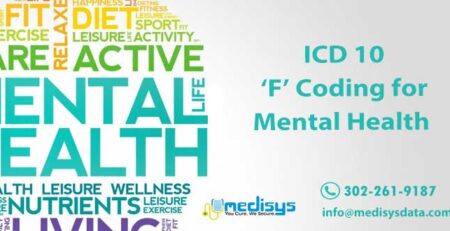Introduction
Billing for mental health services involves navigating a complex landscape of medical coding and modifiers. Modifiers play a critical role in accurately representing the services provided and ensuring appropriate reimbursement. In this comprehensive guide, we’ll discuss key modifiers for mental health billing, providing mental health providers with the knowledge they need to navigate this aspect of their practice effectively.
Exploring Key Modifiers for Mental Health Billing
Key modifiers for mental health billing play a pivotal role in ensuring proper reimbursement and representing services accurately. Mental health providers must familiarize themselves with these modifiers to optimize their billing processes effectively. Let’s explore key modifiers that mental health providers may encounter in their billing processes:
- Modifier 22: Mental health providers may encounter cases where the complexity or extenuating circumstances of a service necessitate additional time, effort, or resources. Modifier 22 denotes increased procedural services, indicating that the service performed required substantially more work than typically expected. This modifier could apply to lengthy initial assessments or therapy sessions involving complex diagnostic evaluations.
- Modifier 23: Unusual anesthesia: Mental health providers who perform procedures involving sedation or anesthesia may use Modifier 23 to indicate that the anesthesia was provided in an unusual circumstance. This could include situations where a patient’s mental health condition necessitates modified sedation protocols or specialized monitoring.
- Modifier 25: Significantly, mental health providers often use Modifier 25, which indicates that a significant, separately identifiable evaluation and management (E/M) service was performed on the same day as another procedure or service. For instance, if a patient presents with a mental health concern and also requires medication management, Modifier 25 would be appended to the E/M code to indicate the distinct nature of the evaluation.
- Modifier 26: When mental health providers perform only the professional component of a service, such as the interpretation of psychological testing, Modifier 26 is appended to the procedural code. This indicates that the provider’s service was limited to the interpretation and does not encompass the technical component, such as administering the test itself.
- Modifier 32: Mandated services: When mental health services are provided under a mandate, such as court-ordered evaluations or treatments, Modifier 32 may be appended to the billing code. This modifier alerts payers that the service was rendered as a result of a legal requirement, which can affect reimbursement rates and billing processes.
- Modifier 33: Preventive services: Mental health providers engaged in preventive care activities, such as screenings for depression or substance abuse, may use Modifier 33 to indicate that the service was provided as part of a preventive care initiative. This modifier is particularly relevant in the context of integrated healthcare models focusing on early intervention and prevention.
- Modifier 51: Multiple procedures: Mental health providers performing multiple procedures during a single session may use Modifier 51 to indicate that more than one service was provided. This modifier helps prevent underpayment by ensuring that each procedure is properly accounted for in the billing process.
- Modifier 52: Sometimes, mental health providers may need to reduce or modify the intensity of a service due to patient factors or extenuating circumstances. Modifier 52 indicates that a service was partially reduced or eliminated without compromising medical necessity. This modifier might be applicable in situations where a planned therapy session is cut short due to patient distress or an unexpected event.
- Modifier 59: This modifier signifies that service was distinct or independent from other services performed on the same day. Mental health providers might use Modifier 59 to denote separate psychotherapy sessions conducted on the same day, each addressing different issues or utilizing different techniques.
- Modifier 62: Co-surgeons: In cases where mental health procedures involve collaboration between two or more providers, such as co-therapy sessions or joint evaluations, Modifier 62 may be used to indicate that each provider acted as a co-surgeon. This modifier ensures that each provider receives appropriate reimbursement for their contribution to the patient’s care.
- Modifier 76: Repeat procedure or service: Mental health providers may encounter situations where a procedure or service needs to be repeated on the same day or during subsequent visits. Modifier 76 indicates that the same procedure was repeated by the same provider, allowing for accurate billing and reimbursement.
Billing Guidelines and Compliance
In addition to understanding the key modifiers for mental health billing, providers must adhere to billing guidelines and compliance standards to avoid claim denials and ensure ethical billing practices. This includes maintaining detailed documentation, staying updated on coding changes, and seeking guidance when uncertain about proper billing procedures.
To summarize,
Key modifiers for mental health billing are essential tools for mental health providers, enabling accurate representation of services and fair reimbursement. By understanding the range of modifiers available and adhering to billing guidelines and compliance standards, mental health providers can navigate the complexities of billing with confidence, ultimately supporting the delivery of high-quality care to their patients.
Medisys Data Solutions (MDS)
For mental health providers seeking expert assistance in navigating the complexities of billing and coding, Medisys Data Solutions (MDS) offers comprehensive medical billing services tailored to the unique needs of mental health practices. With years of experience in the healthcare industry, MDS specializes in maximizing reimbursement while ensuring compliance with billing regulations. From accurate coding and claims submission to revenue cycle management, MDS provides efficient solutions that allow providers to focus on delivering quality care to their patients. Partnering with MDS can streamline billing processes, reduce administrative burdens, and optimize financial performance for mental health practices.
References:












